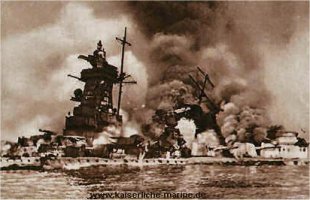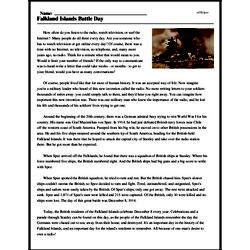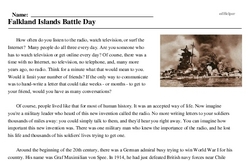Falkland Islands Battle Day
Falkland Islands Battle Day
Reading Comprehension for December 8
How often do you listen to the radio, watch television, or surf the Internet? Many people do all three every day. Are you someone who has to watch television or get online every day? Of course, there was a time with no Internet, no television, no telephone, and, many more years ago, no radio. Think for a minute what that would mean to you. Would it limit your number of friends? If the only way to communicate was to hand-write a letter that could take weeks - or months - to get to your friend, would you have as many conversations?
Of course, people lived like that for most of human history. It was an accepted way of life. Now imagine you're a military leader who heard of this new invention called the radio. No more writing letters to your soldiers thousands of miles away: you could simply talk to them, and they'd hear you right away. You can imagine how important this new invention was. There was one military man who knew the importance of the radio, and he lost his life and thousands of his soldiers' lives trying to get one.
Around the beginning of the 20th century, there was a German admiral busy trying to win World War I for his country. His name was Graf Maximilian von Spee. In 1914, he had just defeated British navy forces near Chile off the western coast of South America. Pumped from his big win, he moved on to other British possessions in the area. He and his five ships steamed around the southern tip of South America, heading for the British-held Falkland Islands. It was there that he hoped to attack the capital city of Stanley and take over the radio station there. But he got more than he expected.




